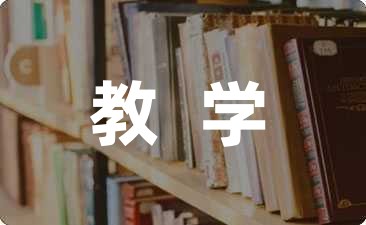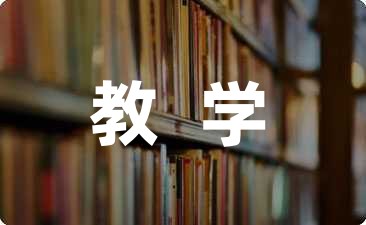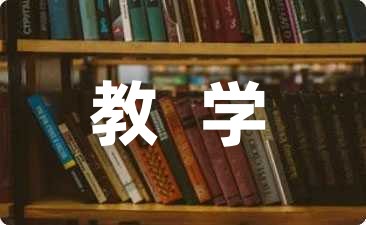二下译林教学计划
二下译林教学计划锦集。
时间瞬息万变,转眼间新的教学任务就要来临了,老师们需要准备新学期的教学大纲。只有规划好教学计划,才能充分利用教学课堂的时间。此时,我们非常荣幸地为您提供精彩的“二下译林教学计划”内容,希望本页所提供的内容能够为您的工作带来一些帮助!
二下译林教学计划 篇1
三年级有两个班,这些学生因初步接触英语,对它有些陌生也有些好奇,学生中大部分的人都积极主动的学习英语,但学习起来还是比较困难的。在启蒙学习阶段,小学生是否能保持浓厚的学习兴趣,养成良好的学习习惯,形成有效的学习方法,这对于他们打好基础,学好英语将起着极为重要的作用。因此,我在教学过程中一定要坚持面向全体学生,深入研究他们的年龄和心理特点,正确理解,把握和处理教材,采用生动活泼的教学方法,营造宽松和谐的学习气氛,用爱的情感,爱的行为和爱的艺术去帮助他们构建知识,提高技能,磨练意志,活跃思维,发展心智和拓展视野。在新学期里我会主动接近并了解学生,让他们认识到英语的兴趣,去认真的了解和学习,从而能在新学期里取得好成绩。
本册是小学开设英语的第一学年第一学期使用,教材的设计体现了“以人为本”的教育思想,形式多样活泼,很符合该年龄阶段的儿童。教材以话题为纲,以交际功能和语言结构为主线,逐步引导学生运用英语完成有实际意义的语言任务。体现了交际教学思想,注重学生语言应用能力的培养。在整体构思、内容安排、活动设计和教学方法选用上都紧密联系学生的生活实际、贯彻了语言的交际功能和语言应用的基本原则。
根据教材编写的'宗旨,现将教材具体分析如下:
1、按“话题―功能―结构―任务”体系编写。话题、功能、结构、任务四个方面紧密联系、融为一体,既吸取国外教材注重交际、情景真实的优点,又发扬国内以往教材结构清晰、系统性强的长处,以利于学生在掌握语言基本结构的同时获得听、说、读、写的基本技能和能力。
2、内容浅显易懂、重点突出,题材结合实际、贴近生活,语言正确规范、真实地道,插图生动活泼、富有情趣,比较符合小学生的生理和心理特点,比较符合儿童学习语言的规律。
3、采用循环式编排方法,较好地体现了“由浅入深、由易到难、循序渐进,逐步扩展、点面结合、不断复现”的原则。
4、在安排词语和语法项目时采用了“早渗透”和“重积累”的方法。所谓“早渗透”,是指某些词语和某个语法项目在进行正式教学之前,先在前面课文中少量出现,使学生对之有所接触和了解,以便正式学习时比较容易领会和掌握。所谓“重积累”,是指把已学过的词语或语法与教授内容结合起来,以旧带新,温故知新,逐步扩展,不断积累。
三年级英语上册教材的教学目的是使学生通过学习这门课程激发起学习英语的浓厚兴趣,培养他们学习英语的积极态度,使他们树起学习英语的自信心,形成初步的英语语感,打好语音,语调基础,帮助他们具备初步的用英语进行交流的能力。
1、听:能够根据听到的单词、短语或主要句子选出相应的图画。
2、说;能够模仿示范提出和回答简单的问题。
5、能使用日常交际用语,活用句型,进行简单的交流,做到大胆开口,发音正确。
1、以活动为课堂教学的主要形式,设计丰富多彩的教学活动,让学生在乐中学、学中用,从而保证学生英语学习的可持续性发展。
2、在教学过程中,采用情景教学法,让学生身临其境,积极主动地参与到课堂教学中去,调动学生的非智力因素,提高学生实际运用语言的能力。
3、通过听、说、读、写、唱、游、演、画、做等形式,进行大量的语言操练和练习。
4、培养学生拼读音标的能力,确保学生自主学习的质量。
5、设计全面、高效的课外作业,培养学生良好的书写习惯,做到整洁、规范、正确地书写。
6、活用教材,根据学生的实际情况,将每单元各个板块进行整合,重组,降低难度。
1、激发学生的学习欲望,设计真实的场景,真实的人物,在学中学会交际。
2、在日常生活中要求学生多说多练。
4、引导学生的各种感官来学习英语,如耳、眼、口、鼻、身等。充分利用学生的各种才能组织安排课堂,如唱歌、跳舞、画画等。
二下译林教学计划 篇2
1. come with me 跟我来 2. need sb. to do sth. 需要某人做某事
3. flower / shoe /gift shop 花/鞋/礼品店 clothes / sports shop 服装店/体育用品商店
4. go shopping = do some shopping = buy some things 购物/买东西
5. hate doing…/ hate to do…. 讨厌做….
6. be interested in (doing) sth. 对(做)…感兴趣
7.down the street 沿着这条街 8. be sure 确信、相信
9. just a minute = wait a minute = wait a moment = wait for a short time 稍等片刻
enough修饰adj./adv.时喜欢放在后 good enough
12. wait for…. 等待… 13. be different from… 与….不同14. the same as…. 与…一样
16.take a look看一看 17.how much 多少钱
18. price用高、低(high, low)形容,不用贵、便宜形容
19. buy Simon a present 买给西蒙一个礼物 = buy a present for Simon 为西蒙买一个礼物
21. different kinds of hair clips 不同种类的发卡
22. go well with… 与…很配23. help the children in some poor areas 帮助一些贫困地区的孩子
24. walk a long way to school 走很长的路上学
25. try on 试穿26. one floor of restaurants 一个楼层的饭馆27. on the top floor 在顶楼
There’s a new mall down the street.沿着这条街走有一个新建的大型购物中心。
What can I help you?/Can I help you?您需要什么?
How much do they cost?How much are they?他们多少钱?
4.I’ll take /buy them.我就买它们。
5. Not far away from my school, there is also a supermarket. 离我学校不远也有个超市。
6.They need books most. 他们最需要书。
7. We can use our pocket money to buy them these things. 我们可以用零用钱买给他们这些东西。
8. Thank you for your help. 谢谢你的帮助。
9. What’s your size? Size 40. 你穿几码? 40码。
10. They fit very well. 他们很合适。
11. Can we see another pair? 我们可以再看一双吗?
12. There are five floors of shops. 有五层楼的商店。
13. There are foods from different areas. 有来自不同地区的食物。
14. The mall is a good place to meet friends and have fun. 这个购物中心是与朋友见面和玩乐的好地方。
二下译林教学计划 篇3
n.名词 v.动词 vt.及物动词 vi.不及物动词 adj.形容词
like / love / enjoy / be interested in / be crazy about (痴迷于)/ have fun / have a good time +doing sth.
Go doing sth. / finish doing sth./Be good at doing sth./ do well in doing sth.
How/what about doing sth./practise doing sth.
2、“四大看”
read vt.看读物(read books/newspaper/magazines/a map等)
look vi. 瞧常用短语look at/ for/around/after/out/over/up
see vt.看见,强调结果 I can see you.
watch vt.带有欣赏性的观看watch TV/ a film / a football game
3、“五大穿着”
Put on 强调“穿上”的动作eg. He ____a coat and goes for a walk.
Wear 强调“穿着”的状态;进行时态表示暂时的情况eg. She is wearing a new skirt now. / wear glasses
Dress (1) dress sb. (2) dress oneself (3) dress up as (4) get dressed
In (穿戴)后接颜色(或衣服),表示状态 look!Lucy is_____a red skirt and a pair of pink shoes.
On 后接人指衣服穿在某人身上看出区别来。The red coat looks nice on you.
4、“四大花费”
Spend:sb.(人) + spend + 时间/金钱 + on sth.
sb.(人) + spend + 时间/金钱+(in) doing sth.
pay:sb.(人) +pay + 金钱+for sth.
take:it takes sb. +时间+ to do sth.
5、“三大地点副词”
Home / there /here 前不加任何的介词 welcome home / come here / go there
6、“三大使役动词”
Make sb. do sth./ have sb. do sth. / let sb.do sth.
(1)Nice to meet you . (2) Glad to meet you . (3) How are you ? (4) How are you doing ?
(5)How is it going ? (6)How is everything going? (7) What’s up?
8、基数词+year(s)+old 表示“…岁”提问用“how old”名词性短语
数词-year-old 也表示年龄,但其为形容词性短语“前有冠词后有名(词)”
Eg. Helen is 11 years old = Helen is an 11-year-old girl.
Let’s do sth. 指包括听者(对方)和说者(我们)都在内,表示建议
Let us do sth.指“让(允许)我们做某事”而听者(对方)不做,只有“我们”做
10、play+the+乐器类名词e.g. Play the piano
Play + 球类运动 play+ football / play cards / play chess
11、She comes from Shanghai= She is from Shanghai . 注:如何提问Shanghai 及如何改一般疑问句
12、be good at =do well in = be clever at = study sth. well
Be good at (反) be bad at do well in (反) be poor in
(1)”在…正上方” There is a bridge over the river.
(2)”越过” A plane flies over the house
(3)”超过” There are over 20 boys in this class.
(4)”结束” Class is over! / Game is over.
区别(1)Every one 可以与of 连用,而everyone 却不能与of连用
Eg.every one of the children likes playing the computer games.
(2) everyone 只指人=everybody而every one 既指人又可指物
15、family 的用法:“家庭”作为整体谓语动词用“单数”He has a big family.
“家人”强调成员,是复数含义,谓语动词用“原形” My family are at home.
拓展:集体名词有people、class、police、sheep、deer、furniture等
16、all/ both/ each/every/neither/ either 的用法
all (1)三者或三者以上“全部、都”(2)all + the + 名词(all the afternoon = the whole afternoon)
(3)all 放在行为动词前,名词前;be 动词后 (4) all of +宾格/名词复数
Both(1)两者都(2)后可跟of +宾格/名词复数Both sides of the street are grown trees.
Each 指两个或两个以上“每一个”个体Each side of the street is grown trees.
Every 指许多人或事物的“全体”后接名词单数 Every student is here . 所有人都在。
Neither指两者都不 neither of you will go to the party.
Either 指两者中任意一人意为“要么.要么” Either you or your brother will go to the party.
(1)作为及物动词;意为“遛(动物);陪着某人走”walk the dog = take the dog for a walk
(2)作为不及物动词;意为“走、步行”walk to school =go to school on foot
(3)作为名词;意为“步行、走”take a walk after supper =go walking after supper
(4)walking作为动名词常做主语 Walking is good for you.
18、含有o 结尾的名词变成复数加es的有:
黑人(Negro)英雄(hero)喜欢吃芒果(mango)、西红柿(tomato)和土豆(potato)
19、系动词中的感官类动词:
look(看起来) sound(听起来)smell(闻起来)taste(尝起来)feel(摸起来)后加形容词
20、make的两种用法:(1) make + sb. + adj. eg. Make me happy (2) make sb.+do sth.
(1)不及物动词 hope to do sth. I hope to hear from you soon.
(2) 后加that从句 I hope you can finish your work soon.
注意:无hope sb.to do sth. 用法;只有wish sb. to do sth.
Week 周;指from Monday to Sunday weekday 工作日;指from Monday to Friday
Weekend 周末;指 Saturday and Sunday (at /on weekends)
else 放在不定代词、疑问代词后面如:what else / anyone else
enough形容词放在enough 前面;名词放在enough后面,简称“形前名后” lucky enough ;enough time
One“同类不同一”只可代指可数名词单数 I don’t like the yellow bike , show me a red one.
Ones 是one 的复数;Would you like a toy? Yes, I’d like new ones = I’d like new toys.
It 代指“同一物品”I have a car. It is red.
25、What’s the date today ? what day is it today? What’s the time ?=what time is it?
26、in front of 与in the front of 区别
In front of 在个体外部的前面(反)behind in the front of 在物体内部的前面(反) at the back of
27、help 的用法(1) help sb. (to) do sth. (2)help sb. with sth.
28、say hello to sb. / say sorry to sb./ say goodbye to sb./ say thanks to sb.
(1)及物动词,“打开” open the box (2) 形容词“开着的” The window is open.
(1)及物动词,“关上”close the door 过去式、过去分词皆为closed
(2)形容词为closed The shop is closed all the morning.
A lend B sth. = A lend sth. to B (A 把东西借出去借给了B ) eg.He lend his bike to me
A borrow sth. from B (A 向B 借了某物,A 为借入) eg.She borrowed a book from the library.
31、far away from=be far from但两者前皆不可跟具体距离 My home is far (away ) from my sister’s .
Away from 前可跟具体距离 My home is ten miles away from the park.
32、few / a few / little / a little 的区别
Little / a little + 不可数名词 few/ a few + 可数名词
A few / a little 表示肯定(一点/一些) few/little 表示否定(几乎没有)
33、Exercise 动词或名词“锻炼”不可数。Exercise 名词表示“练习、操”可数,复数形式
34、too much / too many / much too / very 的用法区别
too much +不可数名词或者做副词性短语放在动词后面 too many +可数名词
much too+ 形容词表示“太….”Very +副词/形容词
(1)行为动词,意为“需要”need sth. Do you need a cup of coffee?
need to do sth. She needs to find a good job.
(2)情态动词,意为“需要,必须”need do sth. / needn’t do sth. You needn’t do the housework every day.
(3)名词,意为“需要,需求” A friend in need is a friend indeed. 患难见真情。
The flowers are in need of water.花儿需要水。
36、trousers复数名词;单独做主语时谓语动词用复数形式;而与pair连用时,谓语动词要与pair一致
类似的复数名词还有:shoes、jeans、glasses、chopsticks、gloves、scissors等。
二下译林教学计划 篇4
1. spend +时间/钱 + on sth. 花时间/钱在.上spend +时间/钱 + (in) doing sth.花时间、钱做某事
2. so lazy 如此懒惰 3. sports clothes 运动服
4. lend sth. to sb. = lend sb. sth.把某物借给某人 5. borrow sth. from sb. 跟某人借某物
7. be made of… 由…制成(能看出原材料) be made from…由…制成(不能看出原材料)
be made in + 地点 产于某地 be made by + 人 被…制造
8.下列的fit 为adj. be fit for … 适合于…
They are fit for a long walk. 他们适合长时间步行
14. 下列fit为 v. They fit (me) very well. 他们很适合(我)。
The coat doesn’t fit (me).那件外套不适(我)。
15. ten more minutes = another ten minutes 再多10分钟
16. hold / have/ give a fashion show 举办一个时装展
17. design a poster for the “Fashion Wall”给Fashion Wall设计一张海报
18. show you different styles of clothes给你看不同式样的衣服
19. look smart / modern and beautiful 看起来时尚和漂亮
20. look great in white穿白色很棒 21. both of them 他俩都
23. a pair of long red leather boots 一双红色长筒皮靴
24. 感叹句的构成:
1、What + n.短语 + 主语 + 谓语What a great show it is! 这是多棒的表演啊!
What tall buildings they are! 他们是多高的楼啊!What fine weather it is! 这是多好的天气啊!
2、How + adj./adv. + 主语 + 谓语 How great the show is! 表演多棒啊!
How tall the buildings are! 这些楼多高啊! How fine the weather is! 天气多好啊!
most young people 大多数年轻人 26. wait for the school bus 等校车
27. lie on the bed 躺在床上 28. go for a dinner 去赴宴
29. have to do sth. 必须/不得不做某事 30. feel soft and smooth 摸上去柔软光滑
1. What do you think of …? = How do you like …? 你认为…怎么样?
2. I’m thinking about what to wear. = I’m thinking about what I should wear.我正考虑穿什么?
3. I can spend ten more minutes in bed then. 那么我可以在床上多待10分钟了。
4. Would you like one more apple? = Would you like another apple? 你想再要一个苹果吗?
5. Can you lend us your red blouse for our fashion show, Mum?
妈妈,你能把你的红衬衫借给我们参加时装表演吗?
6. What size is your blouse? Size 4. 你的衬衫是什么尺寸?大小4。
7. Trainers are light and comfortable and are popular among young people.
运动鞋轻便而且舒适,在年轻人中很受喜爱。
8. Here comes Simon. 西蒙走来了。
9. That’s all for today’s show.= So much for today’s show. 今天的表演到此结束。
10.Thanks for coming. 感谢光临。
11. You look great in your purple shirt. 你穿紫色衬衫看起来棒。
12. The purple shirt looks great on you. 紫色衬衫穿在你身上看起来棒。
13. That pair of long boots is made of leather. 那双长靴是皮革制成的。
14. The jacket is not too long or too large. 这夹克不太长也不太大。
15. My design includes a pair of blue jeans. 我的设计包括一条蓝色牛仔裤。
二下译林教学计划 篇5
译林b各单元教学计划
作者:AI语言助手
译林b教材是一本以培养初中生语言运用能力为目标的英语教材,共分为六个单元,分别是Unit 1 Me and My World, Unit 2 Communication, Unit 3 Travel, Unit 4 Fun and Games, Unit 5 My Future, Unit 6 Let's Celebrate。针对不同的主题,我们可以根据教学需求制定相应的教学计划。
以下是针对译林b不同单元的教学计划:
一、Unit 1 Me and My World
1. 词汇学习
1)学习人物、动物、植物、日常生活中的基本用语;
2)学习数字和时间的表达。
2. 句型学习
1)学习be动词的用法,用am/is/are构成句子;
2)学习一些基本的疑问词和问句的构成方法。
3. 语法学习
1)学习一些形容词的基本用法及其比较级和最高级的构成规则;
2)学习一些基本的名词的用法。
4. 四项能力训练
1)听力:学习听懂简单对话及短文;
2)口语:练习描述人物、动物和植物及日常生活;
3)阅读:练习阅读简单的短文、故事等;
4)写作:练习写一些基本的短文和日记。
主题范文:Me and My Family
My name is Jack. I am a student. I am 13 years old. I live with my parents and my younger sister. My father is a doctor and my mother is a teacher. They are very busy every day. My sister is only six years old. She is very cute and lovely. She likes playing with dolls and singing songs. I am a sports fan. I usually play basketball and football with my friends after school.
二、Unit 2 Communication
1. 词汇学习
1)学习一些问题和回答的基本用法;
2)学习一些常用的日常用语。
2. 句型学习
1) 学习一些基本的情态动词和它们的用法;
2) 学习被动语态的构成方法。
3. 语法学习
1) 学习一些基本的动词的用法;
2) 学习一些基本的副词及其用法。
4. 四项能力训练
1) 听力:学习听懂日常生活中的简单对话;
2) 口语:练习描述人物、事物、状况等;
3) 阅读:练习阅读一些简单的英语短文;
4) 写作:练习写一些简单的英语日记和应用文。
主题范文:Communication
Communication is very important in our daily life. We need to communicate with others to express our thoughts and feelings. We can communicate in many ways, such as talking, writing and texting. Nowadays, with the development of technology, we can also communicate with people from different countries and regions through the internet.
In order to have effective communication, we need to learn some basic phrases and sentences, understand the use of different tenses and modal verbs and be aware of cultural differences. Practice makes perfect, so we should always try to communicate as much as possible with others to improve our English skills.
三、Unit 3 Travel
1. 词汇学习
1) 学习一些基本的旅游用语和常用词汇;
2) 学习一些关于交通工具、天气、地理位置等的词汇。
2. 句型学习
1) 学习一些表示时间、地点、方向等的常用介词;
2) 学习一些表达旅游经历的句型。
3. 语法学习
1) 学习一些基本的不规则动词及其用法;
2) 学习一些基本的复合句的构成方法及其类型。
4. 四项能力训练
1) 听力:学习听懂关于旅游的简单对话和广播;
2) 口语:练习描述景点、城市、建筑物等;
3) 阅读:练习阅读旅游指南、游记等;
4) 写作:练习写一些简单的旅游日记和介绍景点、城市等的短文。
主题范文:Travel to Beijing
Last summer, I went to Beijing with my family for a vacation. We visited many famous attractions, such as the Great Wall, the Forbidden City and the Summer Palace. We also tasted a lot of local food, like Peking roast duck and Jiaozi dumplings. Beijing is a very modern and vibrant city, with a lot of history and culture.
The Great Wall is one of the most impressive sights in China, and it was amazing to see it in person. We walked on the wall for a long time and took a lot of photos. The Forbidden City is another highlight of Beijing. It used to be the palace of the emperor, and the architecture and decoration were very impressive. We learned a lot about the history and culture of China during our trip, and it was a wonderful experience.
四、Unit 4 Fun and Games
1. 词汇学习
1) 学习一些与体育运动、游戏、电子产品等相关的词汇;
2) 学习一些与音乐、艺术等相关的词汇。
2. 句型学习
1) 学习一些表示喜欢和不喜欢的句型;
2) 学习一些表示建议和意见的句型。
3. 语法学习
1) 学习一些基本的连词及其功能;
2) 学习一些特殊疑问句和它们的回答方式。
4. 四项能力训练
1) 听力:学习听懂关于体育运动、音乐、电影等的简单对话和广播;
2) 口语:练习描述体育运动、游戏、电子产品等;
3) 阅读:练习阅读与音乐、艺术、电影等相关的文章和短文;
4) 写作:练习写一些有关兴趣爱好的短文和电子邮件。
主题范文:My Favorite Game
My favorite game is basketball. I started to play basketball when I was six years old, and I fell in love with it immediately. Basketball is a very exciting and challenging sport, and it requires a lot of teamwork and skills. I usually play basketball with my friends after school, and we have a lot of fun.
Basketball is also a great way to keep fit and healthy. It helps me to improve my physical strength and endurance, and it also helps me to relax and relieve stress. I think basketball is not just a game, but also a way of life. It teaches me the values of persistence, discipline and sportsmanship.
五、Unit 5 My Future
1. 词汇学习
1) 学习一些与职业、教育、未来计划等相关的词汇;
2) 学习一些关于科学、技术、环境、文化等的词汇。
2. 句型学习
1) 学习一些表示愿望、计划和意图的句型;
2) 学习一些表达能力、喜好、态度等的句型。
3. 语法学习
1) 学习一些基本的日常英语;
2) 学习一些复杂句的构成方法和用法。
4. 四项能力训练
1) 听力:学习听懂关于职业、未来计划、环境等的简单对话和广播;
2) 口语:练习描述自己的未来计划、兴趣爱好、职业愿望等;
3) 阅读:练习阅读与未来、科学、文化等相关的短文和文章;
4) 写作:练习写一些关于未来计划、职业愿望等的短文和电子邮件。
主题范文:My Dream Job
My dream job is to be a doctor. I have always been interested in medical science and health care, and I want to help people who are suffering from illnesses. I believe that being a doctor is not just a job, but also a noble profession that requires a lot of knowledge, skills and dedication.
To achieve my dream, I need to work hard in my studies and gain a lot of medical knowledge and skills. I also need to learn how to communicate with patients and understand their needs and feelings. I know it will be a challenging journey, but I am willing to do my best to achieve my goal.
六、Unit 6 Let's Celebrate
1. 词汇学习
1) 学习一些与节日、传统、礼仪等相关的词汇;
2) 学习一些与食品、饮料、装饰等相关的词汇。
2. 句型学习
1) 学习一些表示庆祝、祝福、感谢等的句型;
2) 学习一些表达情感、祝愿、建议等的句型。
3. 语法学习
1) 学习一些基本的动词短语及其用法;
2) 学习一些复杂句的构成方法和用法。
4. 四项能力训练
1) 听力:学习听懂关于节日、庆祝活动、礼仪等的简单对话和广播;
2) 口语:练习描述节日、传统、礼仪等;
3) 阅读:练习阅读与节日、传统、装饰等相关的短文和文章;
4) 写作:练习写一些关于节日庆祝和祝福等的短文和电子贺卡。
主题范文:Chinese New Year
Chinese New Year is the most important festival in China. It usually falls in late January or early February according to the lunar calendar. It is a time for families to reunite and celebrate together. During the Chinese New Year, people will decorate their houses with red couplets, paper-cuts and lanterns. They will also clean their houses to sweep away bad luck.
The Chinese New Year Eve is the most important night for family reunion. People will have a big dinner with their family, and children will receive red envelopes with money from their elders as a gift. On the first day of the New Year, people will wear new clothes and visit their relatives and friends. They will also eat dumplings, rice cakes and other traditional food.
Chinese New Year is a time for happiness and celebration. It is a time for people to forget their worries and start a new beginning.
- 幼儿学习计划(精选7篇)06-06
- 数学学习计划(系列11篇)06-06
- 初中班主任年度工作计划(汇总7篇)06-05
- 暑假社会实践报告心得体会初中9篇06-05
- 名班主任年度工作计划集锦06-05
- 实习教师学期教学计划(精选8篇)05-29
- 二年级下册课件系列06-06
- 有关留学生“勤工俭学计划”协议12-21
- 寒假教师研修培训心得体会范例06-05
- 2023学习目标计划6篇06-06
- 记叙文幼儿园教案06-06





